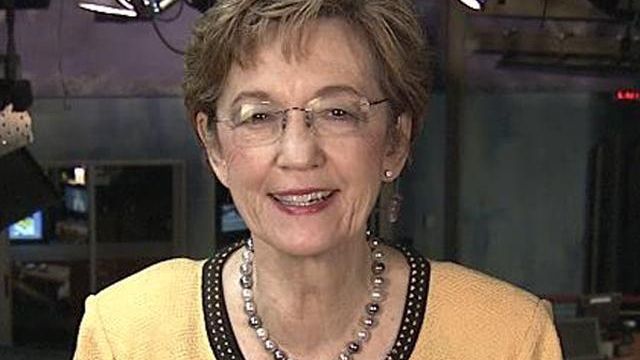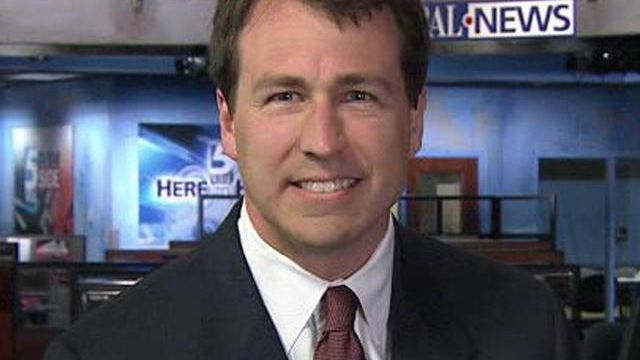Democratic candidates gear up for Senate runoff
North Carolina Secretary of State Elaine Marshall and former state Sen. Cal Cunningham were gearing up Wednesday for a runoff election to decide who will challenge Republican Richard Burr this fall for his seat in the U.S. Senate.
Posted — UpdatedIn Tuesday's Democratic primary, neither candidate drew the 40 percent of votes necessary to avoid a runoff. Marshall led the six-candidate field with 36 percent, while Cunningham came in second with 27 percent.
"The momentum belongs to us, and we're going to capitalize on it," Marshall said Wednesday. "I'll put my energy up against his any day of the week."
"We feel very good about where we are in this campaign," Cunningham said. "The closer we got to election day, more people were responding to our message about jobs and the economy."
The two candidates have 49 more days to campaign before the runoff election on June 22.
Cunningham was quickly back on the campaign trail Wednesday, speaking to small-business owners about how he could help them in Washington, D.C.
"Main Street, North Carolina, needs an advocate in Washington, a U.S. senator who stands on their side," he said.
Marshall maintains that a runoff is unnecessary and potentially divisive, but Cunningham said that it simply gives the candidates more time to make their case to voters.
"This runoff is not necessarily in the best interests of party unity. It's not necessarily in the best interests of the future of North Carolina," Marshall said. "It's time that people put their personal ambitions aside and looked at those issues also."
"Between President Barack Obama and Hillary Clinton, we went long in those (2008) primaries. That was good for our party," Cunningham said. "This is going to give us an opportunity to continue to build on the coalition we've already put together."
Durham lawyer Ken Lewis, who finished third in the primary with 17 percent of the votes, said he has no immediate plans to endorse either Marshall or Cunningham.
Republicans will have two runoffs in congressional races. William Randall and Bernie Reeves will vie for the nomination in the 13th Congressional District, where the winner will face Congressman Brad Miller, and Tim D'Annunzio and Harold Johnson will compete for the right to face 8th District Congressman Larry Kissell.
Poll favors Marshall
Marshall has run a grassroots campaign on a shoestring budget based largely on her 14 years experience in state government, while Cunningham was hand-picked by the national Democratic Party to go up against Burr and has enjoyed steady funding from the party.
"The primary results show I've got the grit, the energy and the connection to the public to win a race against someone they've anointed," Marshall said.
Left-leaning Public Policy Polling said Tuesday night that Marshall begins as the favorite in the runoff. Voters surveyed in a pre-election poll favored Marshall 43 to 32 percent over Cunningham.
PPP's analysis says that Cunningham will have to "significantly improve his appeal to black voters." Slightly more than half of the supporters of former candidates Ken Lewis and Marcus Williams, who are black, indicated that they would support Marshall in a runoff, according to the PPP poll.
Cunningham said he overcame a large deficit in the polls to pull within single digits of Marshall.
"We came from a 37-point deficit to put this into a runoff," he said. "We like where we are, and we're confident of success on June 22."
Both candidates pledged to stay focused on the issues and their Republican opponent, rather than personal attacks, in the campaigning to come.
"We continue to take on Richard Burr, hold him accountable for the bad decisions he's made in Washington. We continue to highlight the voices of North Carolinians who are struggling through this difficult time to make ends meet," Cunningham said. "That's our strategy, and we're going to continue to execute it."
"The strategy's going to be to work harder, work longer, work smarter," Marshall said, "keeping talking about the needs of North Carolina and the long-range future of this state and this country."
Burr, who won his primary with 80 percent of the vote, said he would leave it up to North Carolina voters to judge the job he has done in the past six years. He said he has tried to be a rational, conservative voice in the Senate.
"I've got the same frustrations with the direction of the country, but I also want to be part of the solution and change the direction that we go and, more importantly, bring the brakes to this outrageous spending going on," he said.
Burr on Wednesday committed to debate the eventual Democratic nominee in June and again in October, and he challenged the runoff winner to take part in two more debates before the November general election.
Marshall said that her decades of service in state government best qualify her to represent North Carolina, while Cunningham pointed to his military service and attitude.
"Clearly, I have experience. I have experience in taking on Wall Street, special interests," Marshall said. "That gives me a proven track record."
"I'd be the first Iraq war veteran elected to the United States Senate," Cunningham said. "But I also bring an energy, a commitment and an optimism about the future of our state that is what this state needs to make sure its voice is being heard in these debates in Washington."
• Credits
Copyright 2024 by Capitol Broadcasting Company. All rights reserved. This material may not be published, broadcast, rewritten or redistributed.






